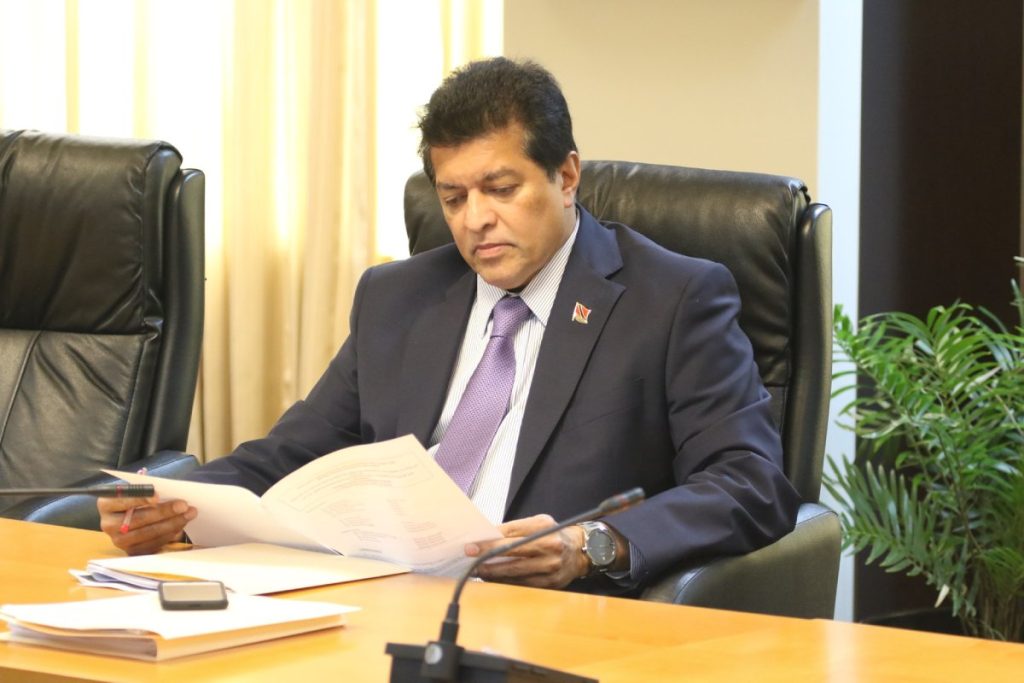As we commemorate World Kidney Day 2024, I am certain that many of you know of someone, be it family, friend, co-worker, (or even yourself), who suffers from kidney disease. I am also certain that you also know of someone who suffered and died because of chronic kidney disease.
World Kidney Day is a global campaign that aims to raise awareness of the importance of our kidneys to our overall health and to reduce the frequency and impact of kidney disease and its associated health problems worldwide. The theme for 2024 is “Kidney health for all: advancing equitable access to care and optimal medication for all.”
Statistics show that there are over fifteen hundred (1,500) persons currently undergoing dialysis in Trinidad and Tobago. This is a yearly general average so the numbers can be lower or higher in each given year. In fact, chronic kidney disease is a leading cause of death in our country, and therefore, maintaining kidney health is important to your overall health and general well-being. By keeping your kidneys healthy, your body will filter and expel waste properly and produce hormones to help your body function properly.
It is interesting to note that one in ten persons worldwide suffers from some degree of chronic kidney disease, as it can develop at any age, and various risk factors can accelerate it.
Some of the ways to keep our kidneys healthy include: staying fit; eating a healthy balanced diet; controlling your blood sugar; monitoring blood pressure; staying hydrated by drinking water; avoid smoking; limit intake of over-the-counter painkillers; and checking kidney function regularly. Keeping away from soft drinks and sugary drinks is a healthy choice and I recommend it wholeheartedly.
Lifestyle changes are important and necessary for kidney wellness. Regular health check-ups are essential for monitoring kidney function and detecting symptoms of renal disease. Early detection enables timely action and care.
Stress can raise the chance of having high blood pressure, which is a risk factor for kidney disease. Meditation, deep breathing exercises, or the enjoyment of hobbies are proven ways in reducing stress. We all need to take our health seriously and make the decision to adopt healthy lifestyles, but the government also needs to channel more resources into the prevention and treatment of all non-communicable diseases. The Seemungal Report into the COVID-19 pandemic highlighted an “NCD debt burden” which is yet to be addressed in any meaningful way by this government.
A constituent of mine who has been undergoing renal dialysis for the past three (3) years just recently shared a worrisome challenge that she is encountering at the private facility contracted by the Ministry of Health to treat her kidney failure. Whilst the cost of her dialysis is borne by the state, her situation is complicated by the fact that the private facility refuses to accept her blood test results done at the renal outpatient clinic at the Eric Williams Medical Sciences Complex. She is being requested to repeat the very same tests at the private facility, at considerable costs to her. This is a vulnerable citizen whose only source of income is a disability grant.
Whilst these public/private partnerships, are necessary for renal dialysis, due to limited capacity at state institutions, they must not place any additional burdens on already suffering citizens. The questions must be asked: why did the medical staff at the private facility refuse to accept test results from a bona fide public health facility? What is this patient to do now? The Ministry of Health needs to monitor their contracted renal dialysis private providers more closely to not only assure quality clinical care but also to detect and eliminate possible unethical practices as referenced above.
Achieving optimal kidney care requires overcoming barriers at multiple levels. These include gaps in early diagnosis, proper healthcare, and challenges to medication cost and accessibility. The government must also address the challenges faced by the National Organ Transplantation Unit to ensure that kidney transplantation, when available is not hindered by shortage of resources.
I close by reiterating, that all of us; individuals, government, and healthcare workers, must do what is required to treat with the issue of chronic kidney disease. It is something that can be prevented and detected at an early stage. Our health, as it is often said, is in our hands.
